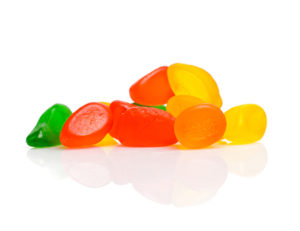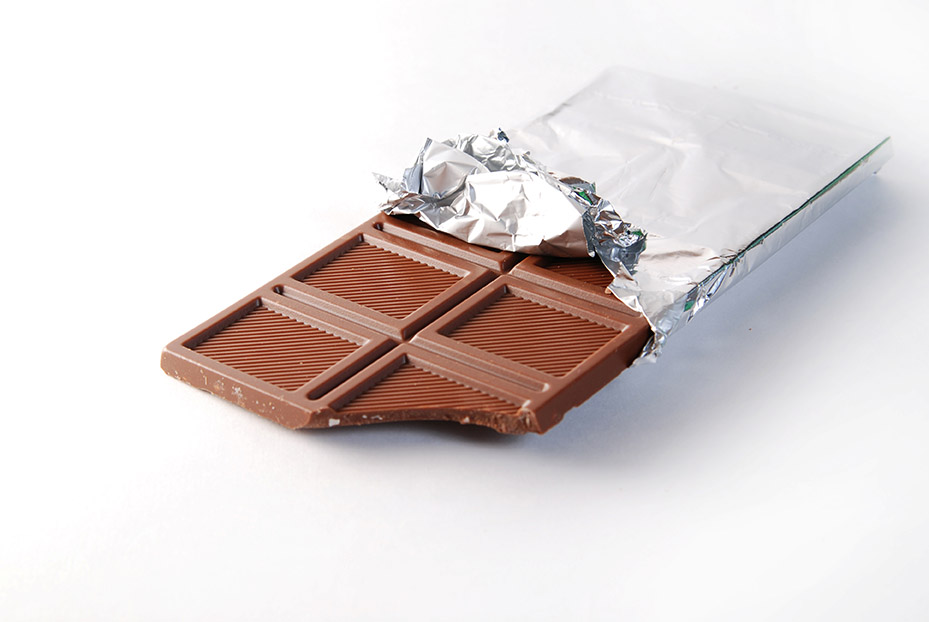People who struggle with food may ask “Is sugar is addictive?” It is a complex topic with strong opinions on both sides. In my article “Is Sugar Addiction Real?” I shared a lively email debate about whether sugar is addictive.
This topic is highly controversial and I won’t attempt to answer all the issues that have been raised. Instead, I’ll list some of the problems with the view that sugar is addictive.
More food for thought about whether sugar is addictive
Does it meet the definition of “addiction”?
 The term addiction has been replaced by “substance use disorders.” The last update to Diagnostic and Statistical Manual 5 (DSM5) lists 11 criteria for substance use disorders resulting from 10 classes of substances. (Here’s an easy-to-read summary.)
The term addiction has been replaced by “substance use disorders.” The last update to Diagnostic and Statistical Manual 5 (DSM5) lists 11 criteria for substance use disorders resulting from 10 classes of substances. (Here’s an easy-to-read summary.)
Food is not included in that list of substances.
This literature review published in the European Journal of Nutrition, concluded, “We find little evidence to support sugar addiction in humans…”
Like drugs, certain foods “light up” the reward and pleasure centers in the brain. But so does music, holding hands with a partner, and a beautiful sunset (and even better, all three!). Are we “addicted” to these?
Our relationship with food is complex
Unlike the animals studied in most articles on sugar and food addiction, the human relationship with food is complex. Our memories, connections, culture, socioeconomic variables, preferences, history of dieting, and many other factors are difficult to factor in – and don’t affect most animal models.
Deprivation is a powerful trigger for out of control eating
Decades of research have shown us that depriving humans of foods they love leads to dysregulated eating. In research on food addiction, a history of dieting is rarely ever accounted for.
In the review mentioned above, :…findings from the animal literature suggest that addiction-like behaviours, such as bingeing, occur only in the context of intermittent access to sugar. These behaviours likely arise from intermittent access to sweet tasting or highly palatable foods, not the neurochemical effects of sugar.”
Given that the treatment for “addiction” is typically abstinence, the “treatment” may result in worsening of the cravings and feelings of powerlessness, reinforcing the belief that the problem is addiction to sugar, not their intermittent restriction from sugar.
You cannot abstain from food
While abstinence often works for treating alcohol and other substance use disorders, food cannot be avoided!
My observation is that part of what appears to be addiction is the belief that a food is “bad” or we are “bad” for wanting or eating it. We experience guilt or shame, perhaps even resorting to secret eating. The thought, “I shouldn’t be doing this! I’m out of control!” is followed by another thought, “Might as well eat it all, for tomorrow I’m going back on my diet!”
Believing these feelings powerlessness over food are a result of addiction leads to only one option: restriction and avoidance.
This is why labeling food as “bad” or “addictive” is problematic and in my opinion, counter-productive.
Trying to avoid “addictive” ingredients distracts you from understanding why you eat
Another driver for the addictive-feeling spiral we call the binge-repent-repeat cycle is the desire to eat food we like in order to avoid or suppress something we don’t like. While everyone eats for emotional reasons, when we often eat for reasons other than hunger, the comfort, distraction, or numbness is short-lived. The underlying trigger is still present, and thus the cycle continues.
Check out this debate: Is Sugar Addiction Real? then continue the conversation by sharing your comments below.
This article is updated from a previous version.
If you enjoyed this article, here are three more to help you:
Get off the diet tightrope and on a wide path!
Heal Your Relationship with Food



4 thoughts on “Is Sugar Addictive?”
I have read your books & am very grateful for what I learned & what I have been able to resolve / relearn.
My disagreement is to not think of addiction for sugar. I agree many people think they are addicted when their experience tells me they are not.
I got convinced after having surgery where the hospital put me on D5W when I had specifically requested to not give it to me. I didn’t know they ignored my instructions until I felt awful, had unbeilivable cravings & asked them about it. They confirmed. It took me over 6 months to get off the sugar. An alcooholic having 1 drink is often dealing with the same issue. I don’t profess to know what it does to my body but I know how I feel. I choose to remove any sugar in my diet many years ago. I do NOT miss it. I do NOT feel deprived. When I am sugar free I feel fantastic. As soon as sugar is in my food as in unlabelled food or by people who think a little bit won’t hurt & it’s in my head, I feel it very quickly. I feel sleepy & gett such incredible cravings I have a very tough time to get off it . I feel generally awful. Please comment on any such experience. Thanks. Nique
Thank you for sharing your experience Nique. The difference between what you are describing and telling people that they are addicted to sugar is that you are aware of the effects on your body, you don’t like how it makes you feel, you CHOOSE not to have it, and you don’t miss it. That is what learning the skills of mindful eating is all about! People are able to make observations and discoveries about themselves and make decisions based on their experience. In other words, an inside-out approach.
That is completely different from someone who struggles with the eat-repent-repeat cycle being told that they are addicted to sugar and must stop eating it. That is an outside-in approach that rarely leads to sustainable change.
Comments are closed.